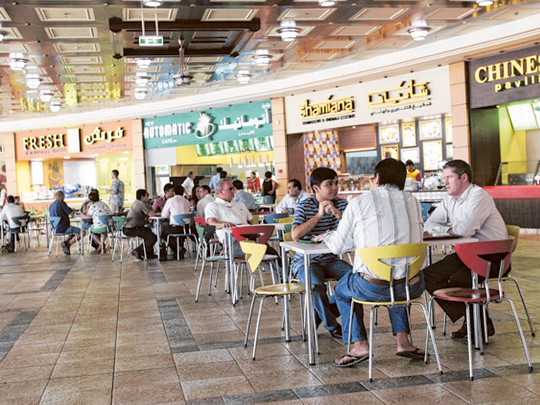
Dubai
A burst of new sub-franchising opportunities could generate its own momentum in the local retail and service sectors. The only difference is that this time the trend is not being led by global brand majors but by mid-sized local businesses and even relatively new entrants to the local marketplace.
Apart from creating a wider location network and, by extension, deeper brand recognition, the sub-franchising route also helps keep costs down for the mainline promoters. And if handled well, it could turn out to be a win-win for both the brand owner and the franchisee.
This is what the Indian ethnic fashion retailer Kalyan Silks has in mind. Its plan is to develop a high-end boutique concept for this concept through sub-franchisee arrangements. “These outlets would be 1,000 square feet on average and retail our merchandise of Dh10,000 and more,” said Prakash Pattabhiraman, who oversees the retailer’s overseas operations and has just opened a 20,000 square feet outlet in Sharjah. “Such deals would spread the brand’s presence and tap prospective shoppers who are not linked to a specific demographic.
“Simultaneously, we will on our own develop the mainline store locations which would be of 6,000 square feet plus, where a broader merchandise will be offered and prices start from Dh100 all the way up to Dh15,000. Sub-franchising allows us to tap openings we would never do on our own.” A decision on what the high-end boutiques will be called has not been decided.
Sub-franchising options are more likely to figure in the fashion and the F&B spaces in the local marketplace. Not surprisingly, these represent two of the fastest growing categories over the last two years.
For the brand owner or master-franchise, it allows them the time and space to focus on developing key locations on their own while sub-franchising partners get to go after the niches, which, ideally, should be where their strengths are best utilised.
From earlier this month, the local master-franchisee for the South African pizza chain Debonairs has been fielding enquiries for potential partners. It was only in 2010 that the first master-franchisee owned store opened in Dubai and since followed by two more, including a flagship location at The Dubai Mall.
But isn’t two years too early a timeframe to consider sub-franchising? “We don’t feel it is; we will offer turnkey solutions to franchisees from design, construction, recruitment, and providing help with the food supply chain,” said Mandeep Singh, managing director at Debonairs Pizza UAE. “So, our franchise partners don’t need to reinvent the wheel. There have been many enquiries from prospects and we are already geared to provide the necessary support required.”
A homegrown F&B brand is also aiming to serve up a similar arrangement in the not too distant future. “A franchising business model is certainly in the near future - we believe this option will not only stimulate growth but also establish solid brand awareness at a rapid rate,” said Ziad S. Bushnaq, founder and CEO of itzza pizza. “With set guidelines, recipes and standard procedures, potential franchisees will increase the success of itzza pizza across the UAE and eventually elsewhere.”












